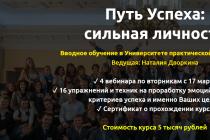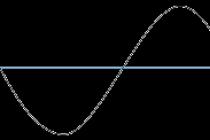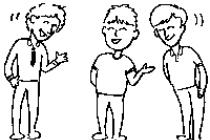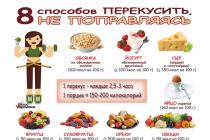The author of the reader's diary
Olga Podgornaya
Electronic reader's diary
Book Information
| Book title and author | main characters | Plot | My opinion | Reading date | Number of pages |
| Wild Dog Dingo, or the Tale of First Love Reuben Fraerman | Tanya Sabaneeva, Kolya, Filka | The action takes place in a Far Eastern village where Tanya Sabaneeva and Filka, a Nanai teenager, live. Once the girl's father comes to the same region from Moscow with a new family - his wife Nadezhda Petrovna and her nephew Kolya. Tanya's relationship with her father and his adopted son is difficult to build. Tanya's confusion escapes neither the teacher nor the devoted Filka. One of the most dramatic episodes of the story is associated with the storm. Trying to help Kolya, who stretched a muscle on the rink, Tanya puts a friend in a sled pulled by dogs. Suddenly the pack saw a horse on the road, dashed after it and disappeared. The children were left alone in the middle of the blizzard. The girl, without losing her presence of mind, supported Kolya until the border guards appeared on skis. At the end of the story, the heroes part. Tanya's mother decides to leave the village, and this news is perceived with pain by both Kolya and Filka. |
I liked this book. It is full of light, a transparent love poem between a girl and a boy. Such a story could only be written by a good psychologist. The poetry of this thing is such that the description of the most real things is accompanied by a sense of fabulousness. | September 1994 | 224 s. |
Book cover illustration
Fraerman R. Wild Dog Dingo, or the Tale of First Love. - M .: Seeker, 1984 .-- 224 p.
About the author of the book
Ruvim Isaevich Fraerman (1891 - 1972) - Soviet children's writer. Born in Mogilev into a poor Jewish family. There he spent his childhood and graduated from a real school. While still at school, he fell in love with literature, wrote poetry, printed them. In 1916 he graduated from the Kharkov Institute of Technology. In 1917 he went to the Far East. He was a fisherman, draftsman, accountant, teacher. During the civil war, he fought with the Japanese invaders as part of a partisan detachment. In 1921 he came to Moscow. In 1924, Fraerman's first story "Vaska-Gilyak" was published here. It tells about civil war and becoming Soviet power on Far East... After her, other books were published - "The Second Spring" (1932) - the first work of the writer for children, "Nikichen" (1934), "Spy" (1937), "Wild Dingo Dog, or The Story of First Love" (1939) - the most famous novel of the writer. During the Great Patriotic War Fraerman joins the ranks of the people's militia, takes part in battles, works for an army newspaper. Fraerman's post-war work is mainly addressed to children and adolescents.
About the book
The history of the creation of the book At first, the book was not accepted, but then it slowly but surely began to turn into a classic. And indeed, once you read "Wild Dingo Dog", you will forever remember both the girl Tanya and the boy Filka, and the atmosphere of romance that will always be in this world. This story is rightfully recognized as the best book by Fraerman and has been translated into many languages of the peoples. the former USSR and the world - in Switzerland, Austria, West Germany.
I. Motyashov
Frayerman became famous for the books "Second Spring", "Nikichen", "Sable", "Spy" and some others written in the late 1920s and early 1930s. They told fascinatingly about the indigenous inhabitants of the Far Eastern taiga, about the construction of a new life in this formerly wild land, about the restless everyday life of border guards. Already in the 40s, great success fell to the lot of R. Fraerman's story “ Long voyage"- about high school students.
But the best book of the writer was "The Wild Dingo Dog, or The Tale of First Love." Like any significant phenomenon of literature, it is closely connected with the era that gave birth to it - the second half of the 30s - and at the same time reflects the eternal and always relevant search by man for the meaning of life and moral solutions to the problems that concern him.
In the story a wild dingo dog, some guys call their classmate, fourteen-year-old Tanya Sabaneeva, who dreams of distant countries and unknown animals. The wild Australian dog personifies for the girl everything unknown and mysterious that a person will have to comprehend and understand in his life, make him close and clear. There are many strange things in Tanya. She has a tendency to loneliness, to solitary contemplation. Her actions are not always clear to others. But this is precisely what makes her interesting: her sharp individuality, dissimilarity to others.
In childhood, even in adolescence, not everyone knows that the uniqueness of a person is an invaluable gift, heavy for its owner, but extremely necessary for all of us. Strange, not like other people, eccentrics, quixotes are also the wealth of society, its creative reserve, intelligence sent to the future, it contains the features of the model of tomorrow's spiritual norm. After all, we all imagine the future as a society of bright, dissimilar personalities - uniquely gifted, comprehensively developed and independent. And thus interesting to each other and mutually necessary.
It is easy and difficult to become such a person. Easy, because every person is programmed from birth to be individual. Even a tree does not have two identical leaves. What can we say about a person with his most complex and subtle mental organization!
But in order to find oneself and remain oneself, in order to develop the opportunities given by nature, everyone needs not only reason and will, but also courage. And in some cases, the readiness for self-denial, for a heroic deed.
R. Fraerman wrote his story about Tanya Sabaneeva in 1939, when the flames of the Second World War were already raging near our borders. Speaking about the idea of the book, the writer recalled thirty years later: “I wanted to prepare the hearts of my young contemporaries for the coming trials of life. Tell them something good about how much is beautiful in life, for the sake of which sacrifices, heroic deeds, and deaths can and should be made. "
Tanya is the same age as Zoya Kosmodemyanskaya: in 1941 she will be seventeen. She lives with her mother in a Far Eastern border town. In winter, when the snow fell, she sculpts in the schoolyard not an ordinary woman, but a sentry with a rifle and a bayonet attached. Tanya's father is a military man, a colonel.
He has another family. The alarming proximity of the terrible events is emphasized in the story by the fact that Tanya's father is unexpectedly transferred from Moscow to the frontier post, just to the city where Tanya lives.
The arrival of the father with his new wife, Nadezhda Petrovna, and her adopted nephew Kolya, changes a lot in the life of the young heroine. Now Tanya has a second home - a rich and generous one, where she is always welcomed with joy, tasty food, presented with beautiful solid things. But the contrast between the well-being of the colonel's father and the more than modest prosperity of the mother, a hospital employee, only reinforces in Tanya's soul mistrust of Nadezhda Petrovna, who puts her best pieces at dinner, jealousy of Kolya, whom her father easily snaps on the nose, and resentment for her mother, whom the father chose another woman.
Tanya painfully comprehends the huge and difficult world of the finest human feelings and relationships, on the one hand, as if not at all dependent on people, and on the other, it is precisely people who are raised to the heights of true beauty and poetry, noble deeds, and heroic deeds.
R. Fraerman carefully, tactfully and psychologically accurately depicts the awakening of the first feeling of love in adolescents: from Nanai Filka to Tanya and from Tanya to her stepbrother Kolya. It is very important, however, that one's own feeling does not blind the person, but, on the contrary, helps to see what is happening in the souls of the people around him. Tanya reveals to her surprise that her mother continues to love her father who left them. And how much bitterness is in the love of Tanya's father for his growing daughter from the consciousness of the irreparable loss of the great paternal happiness - to swing his little child in his arms!
If we remember that the “Wild Dingo Dog” describes Filkin's parental feelings as a hunter's father, the teachers' love for their pupils, and the difficult emotional life of seventh-graders, then it would not be an exaggeration to characterize R. Fraerman's story as a kind of small encyclopedia of love. That love in which, according to the writer, each of us, adults and young people, passes the most serious moral test for the degree of readiness to live in society, for the level and quality of spiritual culture, for humanity.
By the end of the story, Tanya will understand that love is not only joy, happiness, peace, but also suffering, pain, willingness to sacrifice oneself.
In the story, next to Tanya, we see the girl Zhenya, "who had no imagination, but who knew how to find the right reason for everything." She asks in bewilderment: "Tell me, please, Tanya, why do you need an Australian dingo dog?" Unlike Tanya, Zhenya can always answer what exactly she needs and why.
The writer shows how dangerous such rationality, convinced of its infallibility, is. After all, a soul devoid of high impulses, seeking salvation from loneliness in being "like others", easily absorbs the vices of everyday, "mass" consciousness - vanity, envy of others' success, selfish pragmatism. She exaggeratedly develops a sense of self-preservation and fear of life.
The test for Zhenya is the storm that hits the city. He threatens to catch Zhenya and Kolya by surprise at a skating rink in the middle of the river. Tanya hurries to them to warn of the danger. But Kolya dislocated his leg and cannot walk. Tanya decides to stay with him, and Zhenya asks to go to Filka on the way and ask him for help. But Zhenya replies: “No, no, I'll go straight home. I'm afraid the storm will start soon. "
Zhenya is sure that in her place any reasonable person of her age would do this. And “strange” Tanya says to Kolya: “... I'm not afraid of a storm, I'm afraid for you. I know it’s dangerous and I’ll stay here with you. ” Overcoming fear and self-doubt, she will drive a dog team to the Filkina river, and Filka himself will rush to the outpost to warn the border guards that his friends are in trouble. Thanks to Tanya's courage and resourcefulness, thanks to the fact that Kolya was not frightened, and Filka turned out to be a faithful companion, misfortune did not happen.
However, in the school where the children study, there is a history teacher, Aristarchs. The writer draws "his shoulders, raised too high, his indifferent glasses, his hands, which took up so much space that it seemed that no one else had a place in the world." Aristarkhov - incarnate dullness, facelessness. His monumental self-confidence and unshakable sense of superiority over others are based on a complete lack of doubt and conscience. He considers it his duty to write to the local newspaper about the indiscipline of Tanya and Kolya Sabaneev and Fili Belolyubsky, who, instead of sitting in a blizzard at home, had fun on the river and could have died if "our glorious border guards" had not saved them.
The note was printed, posted at the school, and Zhenya, who calmly left her comrades in trouble, said that Tanya "for such things ... should have been expelled from the detachment." She was loudly supported by a new "fat boy". And when Tanya approached the newspaper, she was very surprised that all her classmates turned away from her and silently dispersed, as if fettered by an unknown fear. Looking at Filka, who at that moment was alone by her side, Tanya suddenly "realized that cold winds blow not only from one side, but from the other, wander not only along the river, but also penetrate through thick walls, even in a warm house. they overtake a person and knock him down instantly. "
Nothing hurts a young heart more than meanness and untruth, hypocritically presented as truth and a principled struggle for justice. “... Tanya, opening her lips, swallowed the air, which seemed to her now sharper than on the river, in the strongest storm. Her ears did not hear anything and her eyes did not see. She said:
"What will happen to me now?"
The author is always wiser than his heroes. He knows that children cannot be judged with the same intransigence with which adults are supposed to be judged. When the guys form a void around the "criticized" Tanya, pretending that Tanya does not exist at all, they themselves do not understand that they are committing betrayal. They just mechanically and unconsciously copy the behavior of the adults around them. After all, even Zhenya, who secretly envies Tanya and therefore does not want her well, has, according to the author, "not an evil heart at all, although more often than others, she was right and made Tanya cry."
How terrible can this soulless "righteousness" of young reasoners, who take an example from the "always right" Aristarchus, can be terrible! But childhood, adolescence, by their very nature, are drawn to truth, goodness and do not accept lies, meanness, baseness.
To the fat newcomer, urging to "throw ... Tanya out of the squad," Filka instills: "... I beg you very much: be a man at least once." And when Aristarkhov, in whose voice the boys "did not hear a single sound like mercy," orders Kolya, Filka and the fat boy to immediately seek out Sabaneev, they, who had just quarreled and almost fought, realize that a dead force that does not know mercy the teacher is directed not against Tanya alone, but against the very principle of justice. And they say: “Where will we find her? ... we have not seen her anywhere. How will we send her to you? .. ”It is symbolic that, bypassing Aristarkhov, like some rock dangerous for navigation, they leave, embracing and singing together Svetlov's“ Grenada ”- a song of international solidarity and brotherhood.
The story, which began in the blizzard, ends with a meeting of the pioneer detachment, which, thanks to the honest and firm position taken by the leader Kostya and the teacher Alexandra Ivanovna, unanimously decides to take Tanya's side, to protect her from stupidity and slander. Voting for this decision, each member of the squad, not excluding Zhenya or the fat newcomer, experiences enthusiasm, pride, joyful relief from the consciousness of the nobility and correctness of the deed.
The active civic position taken by the guys increases their self-esteem, raises a person in their own eyes. And from this height, the position of cowardly silence and inaction seems low and treacherous, which at first so shocked Sabaneeva.
In the relay of kindness passed on to Tanya's comrades, the role of Alexandra Ivanovna, the teacher of the Russian language and literature, subjects that are more connected with the spiritual, moral side of a person, is exceptionally great. At first glance, it may seem like a mere trifle Alexandra Ivanovna's refusal to explain the lessons from the elevation of the teaching department. However, there are no trifles in pedagogy. "... If four painted boards," the teacher thinks mentally, "can raise a person above others, then this world is worthless."
Authority is incompatible with authoritarianism, says Alexandra Ivanovna. Always available, calm, even with the guys, but also capable of crying, sharing someone else's misfortune, she is literally and figuratively so close to her students that, as R. Fraerman writes, “there were no barriers between them and her, except for her own shortcomings of everyone. " How accurately and wisely said! But in order to understand each other, to love, to be friends, it is not enough to destroy the partitions between people. We must learn to eliminate our own shortcomings.
“Man is always free. This is our law for eternity, ”her mother says to Tanya. In the text of the story, these words sound like her main, defining thought. A person is free not only in the choice of a loved one or a friend. A person is free to choose between truth and lies, fidelity and betrayal, honesty and hypocrisy, vile fear for his little prosperity and the courage to live by a large moral account, the courage of struggle and heroism. The story of R. Fraerman today teaches us to despise the faceless adaptability of the man in the street, asserts the dignity, originality, responsibility and civic activity of the individual.
“There are books,” wrote M. Prilezhaeva, “which, having entered the heart of a person from childhood and adolescence, accompany him all his life. This is exactly what the book by Ruvim Isaevich Fraerman "The Wild Dingo Dog, or the Story of First Love" has become for many generations of readers. Published in 1939 - it caused a heated discussion in the press; Filmed in 1962 by director Yu. Karasik, it attracted even more close attention: the film was awarded with prizes at two international film festivals; played in a radio show by renowned actors, glorified by the famous song of Alexandra Pakhmutova - she soon firmly entered the school curriculum for Far Eastern literature.
RI Fraerman created the story in the village of Solotcha, Ryazan region, but the Far East made the scene of his work, which conquered him from a young age. He confessed: "I learned and fell in love with all my heart and the majestic beauty of this land, and its poor<…>peoples. I especially fell in love with the Tungus, these cheerful, tireless hunters who, in need and disaster, managed to keep their souls pure, loved the taiga, knew its laws and the eternal laws of friendship between man and man.
It was there that I observed many examples of friendship between Tungus teenage boys and Russian girls, examples of true chivalry and devotion in friendship and love. There I found my Filka. "
Filka, Tanya Sabaneeva, Kolya, their classmates and parents living in a small Far Eastern town - these are the heroes of Fraerman's work. Ordinary people. And the plot of the story is simple: the girl will have a meeting with her father, who once left the family, she will have a difficult relationship with the new family of her father, whom she loves and hates at the same time ...
But why is this story of first love so attractive? “Harmonious, as if created in one breath,” notes E. Putilova, “like a prose poem, the story is small in size. But how many events and destinies it contains, how many changes with the heroes take place on its pages, how many important discoveries! this one is far from serene, and the power of Fraerman's book, its enduring charm, perhaps, lies in the fact that the author, believing in his reader, boldly and openly showed how dearly love is given to a person, which sometimes turns into torments, doubts, sorrows, suffering. And at the same time, how the human soul grows in this love. " And according to Konstantin Paustovsky, Ruvim Isaevich Fraerman “is not so much a prose writer as a poet. before us on the pages of his books in his beautiful essence.<…>prefers to write for adolescents rather than adults. The immediate youthful heart is closer to him than the experienced heart of an adult. "
The world of a child's soul with its inexplicable impulses, dreams, admiration for life, hatred, joys and sorrows is revealed to us by the writer. And first of all, this refers to Tanya Sabaneeva, the main heroine of the novel by RI Fraerman, with whom we get acquainted in the idyllic setting of pristine nature: the girl sits motionless on a stone, the river shoots her with noise; her eyes were turned down, but “their gaze, tired of the glitter scattered everywhere above the water, was not intent. She often took it aside and looked into the distance, where the round mountains, shaded by the forest, stood above the river itself.
The air was still bright, and the sky, constrained by the mountains, seemed among them a plain, slightly illuminated by the sunset.<…>She turned slowly on the stone and walked slowly up the path, where a tall forest descended towards her on the gentle slope of the mountain.
She entered it boldly.
The sound of water running between the rows of stones remained behind her, and silence opened up in front of her. "
At first, the author does not even mention the name of his heroine: it seems to me that he wants so much to preserve the harmony in which the girl is at this moment: the name is not important here - the harmony between Man and Nature is important. But, unfortunately, there is no such harmony in the soul of a schoolgirl. Thoughts, disturbing, restless, do not give Tanya rest. She thinks all the time, dreams, tries to "imagine in her imagination those unexplored lands, where and from where the river runs". She wants to see other countries, another world ("Hunt for wandering" took possession of her).
But why is the girl so anxious to run away from here, why is she now not attracted by this air, familiar to her from the first days of her life, not by this sky, or by this forest?
She is lonely. And this is her misfortune: "it was empty around<…>The girl was left alone ";" No one is waiting for me in the camp ";" Alone, it means that you and I stayed. We are always alone<…>she alone knew how this freedom weighed her down.
What is the reason for her loneliness? The girl has a house, a mother (although she is always at work in the hospital), a friend of Filka, a nanny, a Cossack cat with kittens, a Tiger dog, a duck, irises under the window ... The whole world. But all this will not replace a father, whom Tanya does not know at all and who lives far, far away (no matter what in Algeria or Tunisia).
Raising the problem of single-parent families, the author makes you think about many questions. Do children find it easy to get over parental breakups? How do they feel? How to improve relationships in such a family? How not to cultivate hatred for a parent who has left the family? But R.I. Fraerman does not give direct answers, he does not moralize. For him, one thing is clear: children in such families grow up early.
So the heroine, Tanya Sabaneeva, is seriously thinking about life beyond her years. Even the nanny notes: "You are very clever<…>you think a lot. ”And plunging into the analysis of the life situation, the girl convinces herself that she should not love this person, although her mother never spoke badly about him. with her in the same class, deprives Tanya of peace for a long time. And even on the pier, peering at passers-by, she reproaches herself for succumbing to "the involuntary desire of the heart, which is now beating so hard and does not know what to do: just die or knock even harder?"
It is difficult to take the first step towards a child whom I have not seen for almost fifteen years, Colonel Sabaneev, but even more difficult for his daughter. Resentment, hatred fill her thoughts, and her heart reaches out to her loved one. The wall of alienation that has grown between them over the years of separation cannot be destroyed so quickly, so dining at her father's on Sundays becomes a difficult test for Tanya: "Tanya entered the house, and the dog stayed at the door. How often Tanya wanted her to stay. at the door, and the dog entered the house!<…>Tanya's heart was overflowing with distrust against her will. "
But at the same time, everything attracted her here. Even Nadezhda Petrovna's nephew Kolya, whom Tanya thinks about more often than she would like, and who becomes the object of her gloating, aggression, and anger. Their confrontation (and only Tanya goes into conflict) weighs heavily on the heart of Filka, this faithful Sancho Panza, who is ready to do everything in his power for his friend. The only thing Filka cannot do is to understand Tanya and help her cope with her worries, anxieties, emotions.
Over time, Tanya Sabaneeva begins to realize a lot, her “eyes open”, that internal hard work (and in this she resembles the heroine of L. Tolstoy, Natasha Rostova) bears fruit: the schoolgirl understands that her mother still loves her father, that no one She will not be such a faithful friend as Filka, that pain and suffering often coexist with happiness, that Kolya, saved by her in a blizzard, is very dear to her - she loves him. But the main conclusion that the young heroine makes helps her to overcome the sadness of parting with Filka, Kolya, her hometown, childhood: “Everything cannot pass,” just disappear, “their friendship and everything that so enriched them cannot be forgotten life forever ”. And this process, so important for the search for spiritual harmony by Tanya Sabaneeva, the author shows through her inner monologues, which become a kind of "dialectic of the soul" of the young heroine: "What is this" - thought Tanya. “He’s talking about me.” Is it really that everyone, and even Filka, is so cruel that they do not let me forget for a minute that with all my might I try not to remember! "
Mastering the creation of psychologically correct human characters, "deep poetic penetration into the spiritual world of his heroes", the author almost never describes the state of mind of the characters, does not comment on their experiences. R. Fraerman prefers to remain “behind the scenes”, seeks to leave us, readers, alone with his conclusions, paying special attention, in the opinion of V. Nikolaev, “to an accurate description of the external manifestations of the state of mind of the heroes - posture, movement, gesture, facial expressions, glitter of eyes , everything behind which one can discern a very complex and hidden from external gaze struggle of feelings, a stormy change of emotions, intense work of thought.And here the writer attaches special importance to the tonality of the narrative, the musical structure of the author's speech, its syntactic correspondence of the state and appearance of the given hero, the general atmosphere R. Fraerman's works, so to speak, are always excellently orchestrated. Using various melodic shades, he knows how to subordinate them to the general system, he will not allow himself to violate the unity of the main motive, the dominant melody. "
So for example, in the episode "Fishing" (Chapter 8) we see the following picture: "Tanya was silent with gloating. But her chilled figure with an open head, thin hair curled into rings from moisture, seemed to say:" Look what he, this Kolya, is. ”The author draws a parallel between the inner state of the heroine and the state of nature: the girl is saturated with hostility to Kolya, and this morning is filled with moisture, fog and cold. anger: "Tanya trembled with anger.
- "Please forgive me"! She repeated several times. - What courtesy! You'd better not delay us. We missed the bite because of you. "
And the beautiful description of the snowstorm, created with the help of expressive epithets, comparisons, personifications, metaphors ?! This is the music of the elements! Wind, snow, the sound of a storm - the sound of a real orchestra: "And the blizzard was already occupying the road. It walked like a downpour, absorbing light and ringing like thunder between rocks.<…>High waves of snow rolled towards her [Tanya] - they blocked the way. She climbed on them and dropped again and kept walking and walking forward, pushing her shoulders through the thick, continuously moving air, desperately clinging to clothes like thorns of creeping grasses with every step. It was dark, full of snow, and nothing could be seen through it.<…>everything disappeared, disappeared into this white mist. "
How not to recall here "Buran" S.T. Aksakov or the description of a blizzard in the story "The Captain's Daughter" by Alexander Pushkin !?
Oddly enough, but the work of Reuben Fraerman, created in the winter of 1938, when the main literary method in the country was the socialist realism proclaimed at the first congress of writers, does not look like other works of this period (it is rather closer to the classics of Russian literature of the nineteenth century). The author does not make any of the heroes negative or bad. And to the question that torments Tanya, who is to blame for everything that happened this way, her mother answers: "... people live together as long as they love each other, and when they do not love, they do not live together - they diverge. A person is always free. This is our law. forever. " From other works of the writer about the Far East, "Wild Dingo Dog ..." , "Difficult age".
Notes (edit)
- Prilezhaeva M. Poetic and gentle talent. // Fraerman R.I. Wild Dog Dingo, or The Tale of First Love. Khabarovsk, 1988.S. 5.
- Fraerman R. ... Or the story of the first love. // Fraerman R.I .. The wild dingo dog, or the Story of the first love. Khabarovsk, 1988.S. 127.
- Putilova E. Education of feelings. // Fraerman R.I. Wild Dog Dingo, or The Tale of First Love. A.A. Kuznetsova Honest Komsomol. Stories. Irkutsk, 1987.S. 281.
- http.//www.paustovskiy.niv.ru
- Fraerman R.I Wild dog dingo, or the tale of first love. Khabarovsk, 1988. pp. 10–11.
- In the same place. P. 10.
- In the same place. P. 11.
- In the same place. P. 20.
- In the same place. P. 26.
- In the same place. P. 32.
- In the same place. P. 43.
- In the same place. P. 124.
- Putilova E. Education of feelings. // Fraerman R.I. Wild Dog Dingo, or The Tale of First Love. A.A. Kuznetsova Honest Komsomol. Stories. Irkutsk, 1987.S. 284.
- Fraerman R.I Wild dog dingo, or the tale of first love. Khabarovsk, 1988.S. 36.
- Nikolaev V.I.Traveler Walking Near: Essay on the Works of R. Fraerman. M., 1974. P. 131.
- In the same place.
- Fraerman R.I Wild dog dingo, or the tale of first love. Khabarovsk, 1988.S. 46.
- In the same place. P. 47.
- In the same place. S. 97–98.
- In the same place. P. 112.
List of used literature
- Fraerman R.I Wild dog dingo, or the tale of first love. Khabarovsk: Book. publishing house, 1988.
- Nikolaev V.I.Traveler Walking Near: Essay on the Works of R. Fraerman. M .: Det. literature. 1974, 175 p.
- Writers of our childhood. 100 names: Biographical dictionary in 3 parts. Part 3. M .: Liberia, 2000. Pp. 464-468.
- Prilezhaeva M. Poetic and gentle talent. // Fraerman R.I. Wild Dog Dingo, or The Tale of First Love. Khabarovsk: Book. publishing house, 1988. pp. 5-10.
- Putilova E. Education of feelings. // Fraerman R.I. Wild Dog Dingo, or The Tale of First Love. A.A. Kuznetsova Honest Komsomol. Tale: Irkutsk: East Siberian book publishing house, 1987, pp. 279–287.
- Russian writers of the XX century: Biographical dictionary. - M .: Great Russian Encyclopedia. Rendezvous-A.M., 2000, pp. 719–720.
- Fraerman R. ... Or the story of the first love. // Fraerman R.I .. The wild dingo dog, or the story of the first love. Khabarovsk: Book. publishing house, 1988. Pp. 125-127.
- Fraerman R. Connection of times: Autobiography. // Aloud to myself. M .: Det. lit., 1973. p. 267-275.
- Yakovlev Yu. Afterword. // Fraerman R.I. Wild Dog Dingo, or The Tale of First Love. M .: Det. lit., 1973. p. 345-349.
Friends from childhood and classmates Tanya Sabaneeva and Filka rested in a children's camp in Siberia, and now they are returning home. The girl is met at home by an old dog Tiger and an old nanny (her mother is at work, and her father has not lived with them since Tanya was 8 months old). The girl dreams of a wild Australian dog Dingo, later the children will call her that because of her isolation from the team.
Filka shares her happiness with Tanya - his hunter father gave him huskies. The theme of paternity: Filka is proud of her father, Tanya informs a friend that her father lives on Maroseyka - the boy opens the map and searches for an island with that name for a long time, but does not find it and tells Tanya about it, who runs away crying. Tanya hates her father and reacts aggressively to these conversations with Filka.
Once Tanya found a letter under her mother's pillow, in which her father informs about the move of his new family (wife Nadezhda Petrovna and her nephew Kolya - Tanya's father's adopted son) to their city. The girl is overwhelmed with a feeling of jealousy and hatred for those who stole her father from her. Mother is trying to tune Tanya positively towards her father.
On the morning when the father was supposed to arrive, the girl picked flowers and went to the port to meet him, but not finding him among those who arrived, she gives flowers to the sick boy on a stretcher (she still does not know that this is Kolya).
The study begins, Tanya tries to forget about everything, but she does not succeed. Filka tries to cheer her up (he writes the word comrade on the board with b and explains this by the fact that this is a second person verb).
Tanya lies with her mother in the garden. She's good. For the first time she thought not only about herself, but also about her mother. At the gate, the colonel is the father. Heavy meeting (14 years later). Tanya addresses her father to "you".
Kolya gets into the same class as Tanya and sits down with Filka. Kolya found himself in a new, unfamiliar world for him. It is very difficult for him.
Tanya and Kolya are constantly quarreling, and on Tanya's initiative, there is a struggle for her father's attention. Kolya is an intelligent, loving son, he treats Tanya with irony and derision.
Kolya talks about his meeting with Gorky in the Crimea. Tanya basically does not listen, this results in a conflict.
Zhenya (a classmate) decides that Tanya is in love with Kolya. Filka takes revenge on Zhenya and, instead of Velcro (resin), treats her to a mouse. The little mouse lies alone in the snow - Tanya warms him up.
A writer came to the city. Children decide who will give him flowers, Tanya or Zhenya. They chose Tanya, she is proud of such an honor (“shake the famous writer’s hand”). Tanya unfolded the inkwell and doused her hand, Kolya noticed her. This scene demonstrates that relations between enemies have become warmer. Some time later, Kolya invited Tanya to dance with her on the tree.
New Year. Cooking. "Will he come?" Guests, but Kolya is not. “But quite recently, how many bitter and sweet feelings crowded in her heart at the mere thought of her father: What's wrong with her? She thinks about Kolya all the time. " Filka is experiencing hard love for Tanya, since he himself is in love with Tanya. Kolya gave her an aquarium with a goldfish, and Tanya asked to fry this fish.
Dancing. Intrigue: Filka tells Tanya that Kolya is going to the skating rink with Zhenya tomorrow, and Kolya says that they will go to school with Tanya tomorrow. Filka is jealous, but tries to hide it. Tanya goes to the skating rink, but hides her skates, as she meets Kolya with Zhenya. Tanya decides to forget Kolya and goes to school for the play. A storm begins abruptly. Tanya runs to the rink to warn the guys. Zhenya got scared and quickly went home. Kolya fell on his leg and cannot walk. Tanya runs to Filka's house, gets into a dog sled. She is fearless and determined. The dogs suddenly stopped obeying her, then the girl threw them at the mercy of her beloved Tiger (it was a very big sacrifice). Kolya and Tanya fell off the sled, but despite their fear, they continue to fight for their lives. The blizzard is getting stronger. Tanya, risking her life, pulls Kolya on the sled. Filka warned the border guards and they went in search of children, among them was their father.
Holidays. Tanya and Filka visit Kolya, who froze his cheeks and ears.
School. Rumors that Tanya wanted to destroy Kolya by dragging him to the rink. Everyone is against Tanya, except Filka. The question is raised about the exclusion of Tanya from the pioneers. The girl hides and cries in the pioneer room, then falls asleep. They found her. Everyone will learn the truth from Kolya.
Tanya wakes up and returns home. They talk with their mother about trust, about life. Tanya realizes that her mother still loves her father, her mother offers to leave.
Meeting with Filka, he learns that Tanya is going to meet Kolya at dawn. The film out of jealousy tells their father about it.
Forest. Kolya's explanation of love. Father comes. Tanya leaves. Farewell to Filka. Leaves. End.














